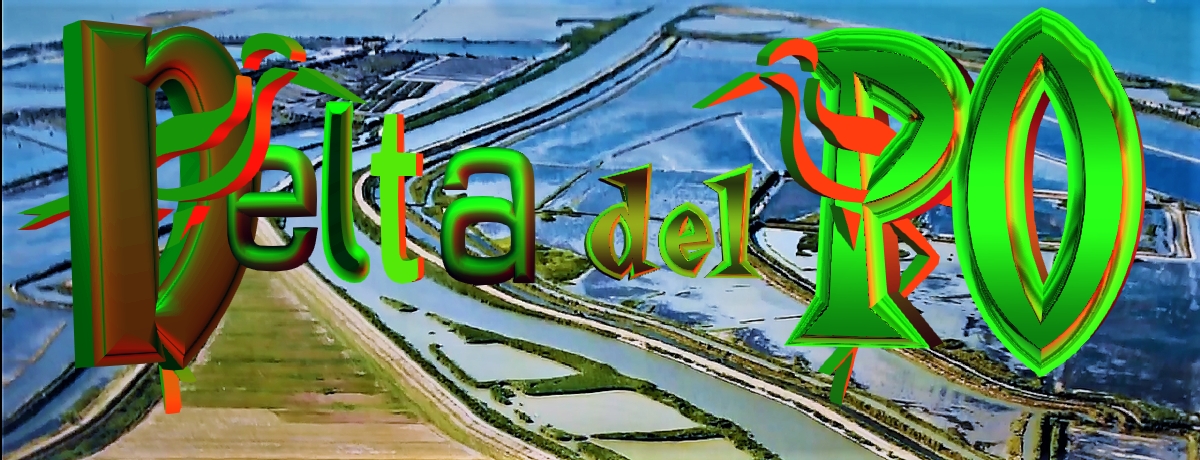PESCANDO NEL PO DI VOLANO
CON LE RONDINI DEL MARE
ITALIANO
PESCANDO NEL PO DI VOLANO CON LE RONDINI DEL MARE
Ospite di amici una giornata meravigliosa in un
"capanno da pesca" alla foce del Po di Volano. All'interno una vera e
propria "casa" divisa in vari settori, compreso il caminetto con il
braciere.
Belle le sequenze delle "rondini di mare" che si
tuffano per prendere i pesci che rimangono nella rete.
Tutt’intorno natura selvaggia. Il medesimo paesaggio che si
riscontra fra le rive degli altri rami del fiume Po, poché questo ne era il
ramo principale, almeno fino al 1152 (rotta di Ficarolo) e passava per la città
di Ferrara.
Altra deviazione avvenne con il terremoto del 1570, quando
il fiume abbandonò il delta delle Valli
di Comacchio per portare tutte le sue acque nel delta attuale: un evento
epocale, che nel 1580 papa Gregorio XIII volle far immortalare nella Galleria
delle carte geografiche dei Musei vaticani. Ma il nuovo corso minacciava
l’interramento della laguna di Venezia e per tale ragione la Repubblica di Venezia lo ha deviato con il famoso Taglio di Porto
Viro, nel 1604, creando l’attuale territorio del Delta.
Sfocia in mare con
una foce ad estuario a est di Codigoro, presso il Lido di Volano; tra le due
località forma un'area naturale protetta, la riserva naturale Po di Volano.
ENGLISH
FISHING IN THE PO OF FLYING WITH THE SWALLOWERS OF THE SEA
Guest of friends, a wonderful day in a "fishing
hut" at the mouth of the Po di Volano. Inside a real "house"
divided into various sectors, including the fireplace with the brazier.
Beautiful sequences of "sea swallows" that dive to
catch the fish that remain in the network.
All around wild nature. The same landscape that is found
between the banks of the other branches of the river Po, why this was the main
branch, at least until 1152 (route of Ficarolo) and passed through the city of
Ferrara.
Another deviation occurred with the earthquake of 1570, when
the river abandoned the delta of the Valli di Comacchio to bring all its waters
into the current delta: an epoch-making event, which in 1580 Pope Gregory XIII
wanted to immortalize in the Gallery of the Vatican Museums geographical maps .
But the new course threatened the burial of the Venice lagoon and for this
reason the Republic of Venice deviated it with the famous Taglio di Porto Viro,
in 1604, creating the current territory of the Delta.
It flows into the sea
with an estuary mouth east of Codigoro, near Lido di Volano; between the two
localities it forms a protected natural area, the Po di Volano nature reserve.
DEUTSCH
FISCHEN IN DER PO FLIEGEN MIT DEN SCHWÄLERN DES MEERES
Gast von Freunden, einen schönen Tag in einem „Fischerhütte“
an der Mündung des Po di Volano. In einem echten "Haus" in
verschiedene Sektoren unterteilt, darunter der Kamin mit dem Kohlenbecken.
Schöne Sequenzen von "Seeschwalben", die tauchen,
um die Fische zu fangen, die im Netzwerk bleiben.
Rundherum wilde Natur. Die gleiche Landschaft, die zwischen
den Ufern der anderen Zweige des Flusses Po, da dies war sein Hauptzweig,
zumindest bis 1152 (Ficarolo gebrochen) und ging in die Stadt Ferrara zu finden
ist.
Eine weitere Abweichung passierte mit dem Erdbeben von 1570,
als der Fluss das Delta des Comacchio Tales ließ alle seine Gewässer im
aktuellen Delta zu bringen: ein epochales Ereignis, das im Jahr 1580 Papst
Gregor XIII in den Karten Galerie der Vatikanischen Museen erfassen wollte .
Aber der neue Kurs drohte, die Bestattung der Lagune von Venedig, und aus
diesem Grunde die Republik Venedig hat mit dem berühmten Porto Viro Schnitt
umgeleitet, im Jahr 1604, das aktuelle Delta Gebiet zu schaffen.
Es mündet östlich von
Codigoro in der Nähe von Lido di Volano in das Meer mit einer Flussmündung;
zwischen den beiden Ortschaften bildet es ein Naturschutzgebiet, das
Naturschutzgebiet Po di Volano.











